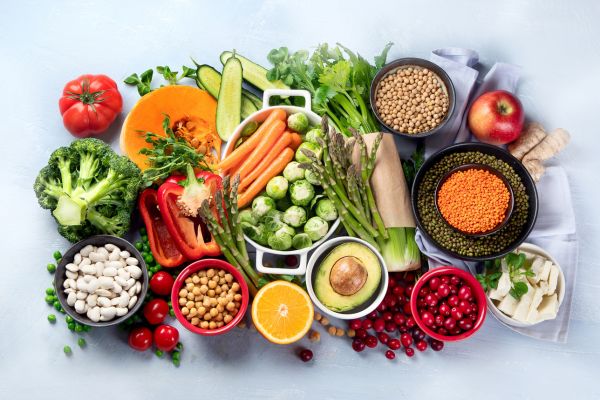The vegan diet has steadily gained popularity over the past decade, drawing attention from health-conscious individuals, environmental advocates, and animal lovers alike. With an increasing number of people making the switch, the vegan lifestyle has transformed from a niche movement into a mainstream dietary choice. But what exactly is a vegan diet, and why are so many people embracing it with enthusiasm? This article explores the benefits of a vegan diet, its growing appeal, and inspiring meal ideas to help beginners transition smoothly and confidently.
Understanding the Vegan Diet
At its core, a vegan diet excludes all animal products. That means no meat, dairy, eggs, or other animal-derived ingredients. Instead, it focuses on plant-based foods such as fruits, vegetables, grains, legumes, nuts, and seeds. While some may perceive it as restrictive, the vegan diet actually opens up a wide variety of flavorful and nutritious options. It encourages creativity in the kitchen and offers a fresh perspective on how food can nourish both body and mind.
For many, the decision to adopt a vegan diet stems from ethical concerns regarding animal welfare. Others are drawn to its environmental benefits, particularly its lower carbon footprint compared to diets that include animal products. Still, a growing number are motivated by the desire to improve their health and well-being. No matter the reason, one thing is clear—the vegan diet offers a host of advantages for those willing to explore it.
Health Benefits of a Vegan Diet
One of the most compelling reasons people turn to a vegan diet is its potential to boost health. Numerous studies have shown that individuals following a plant-based diet often experience lower rates of heart disease, high blood pressure, type 2 diabetes, and certain types of cancer. The abundance of fruits, vegetables, and whole grains provides essential nutrients and fiber that support overall well-being.
Weight management is another area where a vegan diet can be particularly beneficial. Since plant-based foods are generally lower in calories and saturated fats, those who follow a vegan lifestyle often find it easier to maintain a healthy weight. Moreover, the fiber-rich nature of the diet helps with digestion and keeps you feeling full longer, which can prevent overeating.
Additionally, many people report having higher energy levels and improved skin after switching to a vegan diet. The absence of processed meats and dairy, combined with the inclusion of antioxidant-rich foods, contributes to better health and vitality. However, it’s important to plan your meals wisely to ensure you’re getting enough protein, iron, vitamin B12, and omega-3 fatty acids—nutrients that may be less abundant in a vegan diet without careful attention.
Environmental and Ethical Advantages
Beyond personal health, the vegan diet also holds significant benefits for the planet. Animal agriculture is one of the leading contributors to greenhouse gas emissions, deforestation, and water pollution. By choosing plant-based foods, individuals can reduce their environmental impact in meaningful ways. A vegan diet requires fewer natural resources, such as land and water, and produces less waste, making it a more sustainable option for a growing global population.
Ethical considerations also play a major role in the decision to adopt a vegan diet. Many people are uncomfortable with the treatment of animals in industrial farming operations and choose to avoid supporting those practices. A vegan lifestyle aligns with values of compassion and respect for all living beings, offering a way to live more harmoniously with the natural world.
Making the Transition: Vegan Meal Ideas for Beginners
Switching to a vegan diet might feel overwhelming at first, but with the right approach, it can be both enjoyable and fulfilling. One key to success is to focus on adding variety to your meals. Instead of concentrating on what you’re eliminating, explore the exciting world of plant-based cuisine and discover new flavors and ingredients.
Start your day with a hearty breakfast like oatmeal topped with fresh berries, almonds, and a splash of plant-based milk. For lunch, a quinoa and chickpea salad with mixed greens and tahini dressing offers a satisfying and protein-rich option. Dinner could include a vibrant vegetable stir-fry with tofu and brown rice, or a comforting bowl of lentil soup with crusty whole-grain bread. Don’t forget to snack smart with fruits, hummus and veggies, or a handful of trail mix.
As you become more familiar with vegan ingredients, cooking at home becomes easier and more rewarding. Many traditional dishes can be adapted using plant-based alternatives. Whether it’s vegan lasagna made with cashew cheese or a burger crafted from black beans and oats, the possibilities are virtually endless.
Restaurants and grocery stores have also adapted to the demand for vegan options. From almond milk lattes to dairy-free ice cream, plant-based products are now widely accessible. Reading labels and exploring new brands can help you find convenient and delicious foods that support your vegan journey.
Overcoming Common Challenges
Every new lifestyle change comes with its set of challenges, and the vegan diet is no exception. Social situations, such as family gatherings or dining out, can sometimes present obstacles. Communicating your dietary choices clearly and seeking out vegan-friendly restaurants in advance can make a big difference.
Cravings for familiar non-vegan foods are another hurdle, but these often fade with time as your palate adjusts. Many people find that after a few weeks, they genuinely prefer the taste and feel of plant-based meals. If you ever feel stuck, there’s a wealth of support available online—from recipe blogs and cookbooks to social media communities where you can share experiences and get advice.
It’s also helpful to stay informed and continually educate yourself about the nutritional aspects of a vegan diet. Consulting with a dietitian who specializes in plant-based nutrition can ensure you’re meeting all your dietary needs and help you stay on track for long-term success.
Embracing a New Way of Living
Ultimately, the vegan diet is more than just a menu choice—it’s a lifestyle centered around health, sustainability, and compassion. While it may take some adjustment, the benefits are well worth the effort. From improved physical health to a reduced ecological footprint, adopting a vegan diet empowers individuals to make choices that align with their values and contribute to a better world.
For beginners, the key is to start with curiosity and a willingness to try new things. With each plant-based meal, you’re not just nourishing your body—you’re taking a meaningful step toward a healthier, more ethical, and environmentally friendly way of living.
Conclusion: The Vegan Diet as a Path to Positive Change
Adopting a vegan diet is a transformative decision with far-reaching benefits. Whether you’re drawn to it for health reasons, ethical concerns, or environmental impact, this lifestyle offers a wealth of rewards. By embracing a variety of plant-based foods and staying mindful of your nutritional needs, you can enjoy delicious meals while supporting your well-being and the planet. As more people discover the power of the vegan diet, it’s clear that this movement is not just a trend—it’s a lasting path toward positive change for individuals and the world around them.





